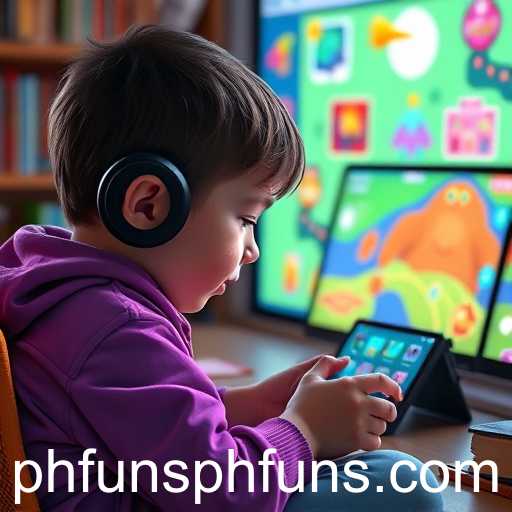An exploration of the intersection between education and gaming, with a focus on recent trends and the role of the website 'phfun s.'
In recent years, the landscape of online gaming has undergone a significant transformation, with a marked increase in educational content and platforms. A prime example in this evolving sector is the website known as 'phfun s,' which has garnered attention for its innovative approach to blending fun with learning. As of 2025, this platform represents a notable trend in the gaming industry—integrating education seamlessly into engaging gameplay.
'Phfun s' distinguishes itself by providing a plethora of games that appeal to a wide range of age groups, particularly focusing on young learners. The platform's emphasis on educational content is aligned with global trends that advocate for more interactive and digital-centric learning experiences. As traditional educational systems grapple with integrating technology into curriculums, 'phfun s' stands out as an effective bridge between digital engagement and educational enrichment.
This shift towards educational games is reflective of a broader movement within the industry. According to industry reports, the educational games market is poised for significant growth, projected to exceed a market value of $10 billion by the end of 2025. This growth is driven by several factors, including the increasing integration of digital learning solutions in schools globally, the accessibility of technology, and the growing recognition of the educational potential embodied in gaming.
Commentators have noted that the success of platforms like 'phfun s' lies in their ability to harness the intrinsic motivational factors of gaming—such as rewards, challenges, and narrative structures—to support educational objectives. By tapping into the entertainment aspect of games, these platforms manage to capture the attention and sustained engagement of younger audiences, turning learning into an immersive and enjoyable experience.
Moreover, the recent events have accelerated the adoption of digital solutions. The global shift toward remote learning, triggered by the pandemic's aftermath, has underscored the need for adaptive and flexible educational resources. 'Phfun s' meets this need by offering games accessible on various devices, ensuring that learning can continue irrespective of geographical constraints or traditional classroom settings.
The dynamics of the educational gaming scene continue to evolve, pointing to a future where gaming plays a pivotal role in shaping how knowledge is consumed and retained. As 'phfun s' and similar platforms continue to innovate, the lines between play and learning will likely become ever more blurred, paving the way for a new era in education.




